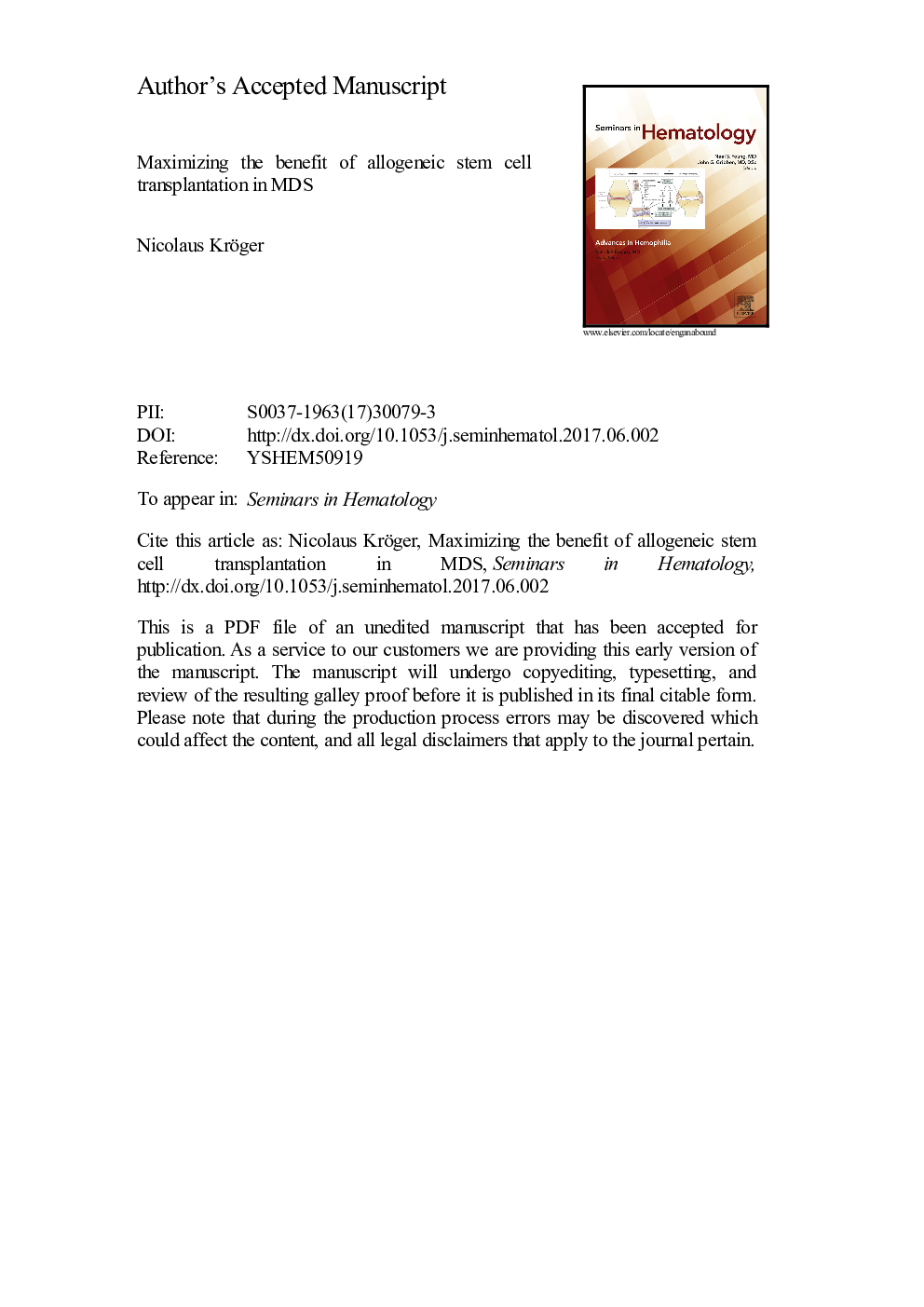| Article ID | Journal | Published Year | Pages | File Type |
|---|---|---|---|---|
| 5664394 | Seminars in Hematology | 2017 | 10 Pages |
Abstract
Allogeneic stem cell transplantation (AHSCT) is an evolving field in the treatment of patients with myelodysplastic syndrome (MDS) and has become the third most frequent indication for AHSCT worldwide. Less toxic conditioning regimens, as well as extension of the donor pool to include haplo-identical donors, have led to a broader utility of AHSCT, especially in older patients with MDS. While disease-specific scoring systems such as the International Prognostic Scoring System (IPSS), IPSS-Revised (IPSS-R), or World Health Organization (WHO) Prognostic Scoring System (WPSS) have been used to select patients for AHSCT, new transplant-specific scoring systems have been developed to determine outcome after AHSCT, which include also transplant- and patient-related factors that determine more precisely outcome and allows to balance more properly the risk of relapse and non-relapse mortality. More recent studies suggested beside cytogenetics also a major impact of molecular genetics on outcome after AHSCT, mainly for p53 and RAS pathway mutations, which are currently not included in any available risk score. The risk of clonal evolution and the known poor outcome of worse cytogenetics and molecular mutations argue to perform AHSCT at an earlier stage of the disease, which is supported by an IPSS-R-based multistate model that recommends AHSCT at IPSS-R intermediate-risk stage.
Keywords
Related Topics
Health Sciences
Medicine and Dentistry
Hematology
Authors
Nicolaus Kröger,
